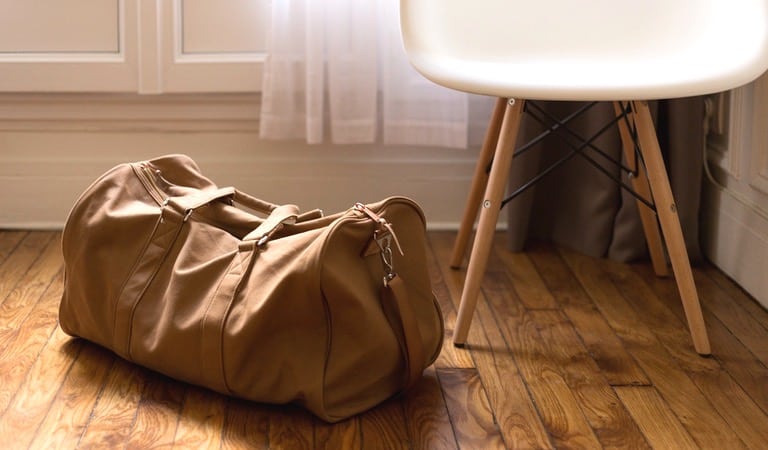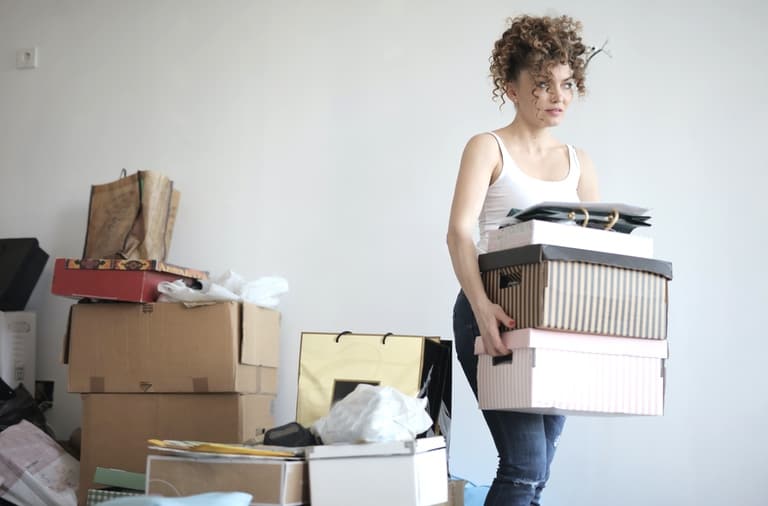There are a few scenarios when a landlord might contemplate whether they are able to move a tenants personal belongings without seeking permission. There are laws and regulations that govern private tenancies, so it’s important that landlords understand what they can, and cannot do, with regards to tenants ‘stuff’.
Under normal circumstances, landlords cannot move a tenant’s personal belongings without permission. This is because British law affords tenants the right to live in “quiet enjoyment”. This right is aimed at keeping landlords from accessing the rented property unannounced and without proper cause.
Tenant property rights are somewhat of a touchy (no pun intended) topic. The law has a decent go at trying to cover all the bases but, sometimes, good old logic has to be employed.
In most cases, a landlord is not allowed to just move a tenant’s belongings. In fact, landlords are NOT even allowed to access the property at all in most cases.
British law dictates that landlords must give tenants 24 hours notice of any upcoming visits or inspections. Tenants can still refuse these requests if they are inconveniently timed. These regulations are part of the Landlord and Tenant Act 1985 to ensure that tenants live in “quiet enjoyment”, free of unwarranted intrusions by landlords.
The most common scenarios in which landlords may feel compelled to move a tenant’s belongings are when rent is late or when the tenant has been missing for a significant period. However, in such cases, any landlord who destroys, disposes of or even moves a tenant’s possessions runs the risk of violating the Torts (Interference with Goods) Act 1977.
When reason allows, landlords CAN move a tenant’s things. If, for example, the landlord wishes to carry out a (legally mandated) gas safety check, and some of the tenants furniture is in the way, they will have no choice but to move it if the tenant is not available to ask.
If the tenant has given permission for the landlord to enter the property, and there is a large amount of mail on the floor, the landlord can pick up the mail to prevent it from being trodden on, or prevent it from being a slip hazard.
Another example, is if the property is on fire and the landlord believes the tenant is inside. If the tenant is unconscious and trapped under a heavy piece of furniture, logic dictates that he or she is allowed to move it to help save them.
Contents
Can Landlords Look Through Tenants Stuff?
As I mentioned earlier, it is against the law for landlords to access the property without proper cause, and without notifying the tenant beforehand. Naturally, going through the tenant’s personal belongings is an even greater privacy violation.
Unless there is a logical, or emergency, reason to do so (e.g. searching for a mobile phone if the tenant happens to have a medical emergency) landlords, have absolutely no right to look through a tenants personal belongings.
Landlords who suspect their tenants of illegal activity should contact the relevant authorities and not snoop around to try and conduct their own investigation. Be warned though, as things might get pretty awkward if your suspicions are off.
How Long Does A Tenant Have To Collect Their Belongings?
After vacating a rental property, a tenant has 21 days to collect their belongings once they receive a written notice from the landlord. Notices sent through the postal system, should be sent via Recorded Delivery, clearly stating how the possessions will be disposed, if they are not collected.
Notices should also give instructions on how they can make arrangements to collect the items. Of course, notices sent via email will work just as well, if not better, as there will be a recorded chain of communication.
If the possessions have any value, the landlord can also state that they intend to sell them if they are not collected within the notice period. Although proceeds of the sale will need to be passed to the tenant, or kept for up to 6 years, if the tenant is not contactable. This is useful if the tenant has left bulky items such as furniture, which could be difficult or costly to store prior to the new tenants moving in.
Any costs incurred for the removal, storage and sale of items left behind by a tenant, are deductible from the sale price the landlord receives. However, the law will expect the landlord to obtain the best price possible so it’s important to research the value of items and keep records.

What Obligations Do Landlords Have At The End Of A Tenancy?
There are a number of occasions where landlords may find themselves in a situation where they feel responsible for a tenants belongings. This can include some rubbish, a few items of clothing and even hardware items such as televisions, microwaves and pieces of furniture.
By default, the landlord becomes an involuntary bailee of the goods and they therefore are responsible for having to give the tenant reasonable notice of their intentions to have the items removed from the property.
The easiest way for a landlord to approach this, is to take a quick inventory of the items which the tenant has left behind; photographs or video footage is a good idea too.
If a landlord removes the tenants belongings without a thorough record of the items, the tenant will have the opportunity to seek replacements from the landlord and at a potentially higher spec if thorough notes and evidence was not taken.
If items need to be removed from the property due to a quick turnaround of tenants for example, the landlord should take care to store the items in a safe, secure and dry place to avoid any damage.
As I mentioned earlier, any costs associated with having to store the items, or dispose of any rubbish, can be sought from the tenant, so it would be a good idea to notify the Tenancy Deposit Scheme of the situation as soon as possible.
Extra caution should be taken for larger electrical goods e.g. televisions and fridge freezers, as they may be on a higher purchase agreement, and you may find that the tenant has already made arrangements for the items to be collected but has not notified the landlord of the details.
If items are sold and the tenant reappears within a period of 6 years, the landlord would need to give the tenant the money back, less storage costs if applicable.
Extra care must be taken when landlords are considering throwing away items which do not look valuable – one mans junk is another mans treasure! Many different types of items can have a sentimental value which is irreplaceable, and a landlord who disposes of such items can potentially be sued.
How Can A Landlord Locate A Former Tenant?
Like many things, communication is key. Landlords who fail to take reasonable steps to contact a former tenant, could face civil action if they decide to dispose of any personal belongings without consent.
If you are having difficulty in contacting a former tenant, there are online services that can help for a low cost fee, and on a ‘no trace no fee’ basis. The more details about the tenant you have, the better, including:
- Full Name
- Date of Birth
- Previous Addresses
- Place of Work
- Partners Names
To learn more about this topic, I would recommend reading 5 Important Things For Tracing An Ex-Tenant on the FindUKPeople.com website.

